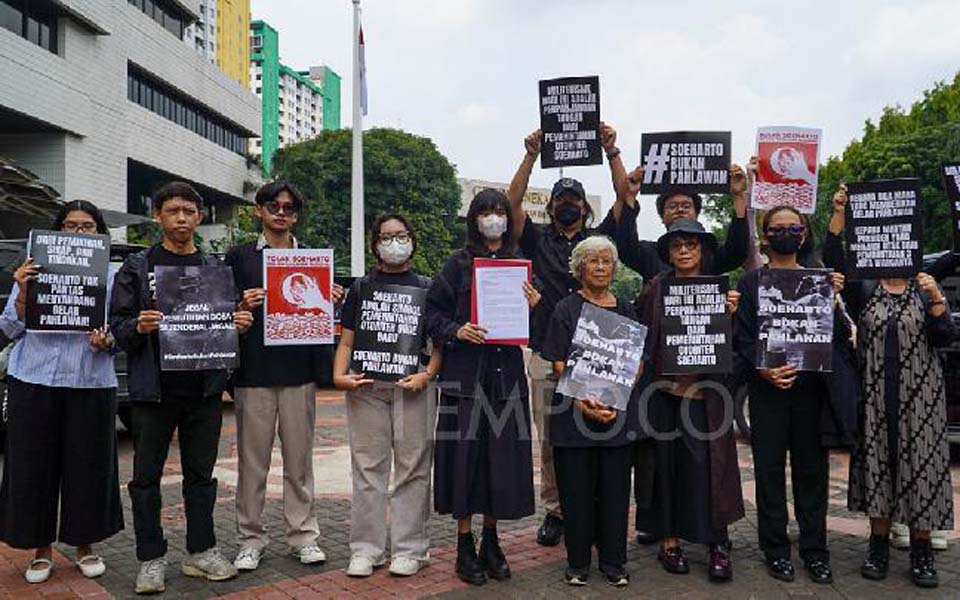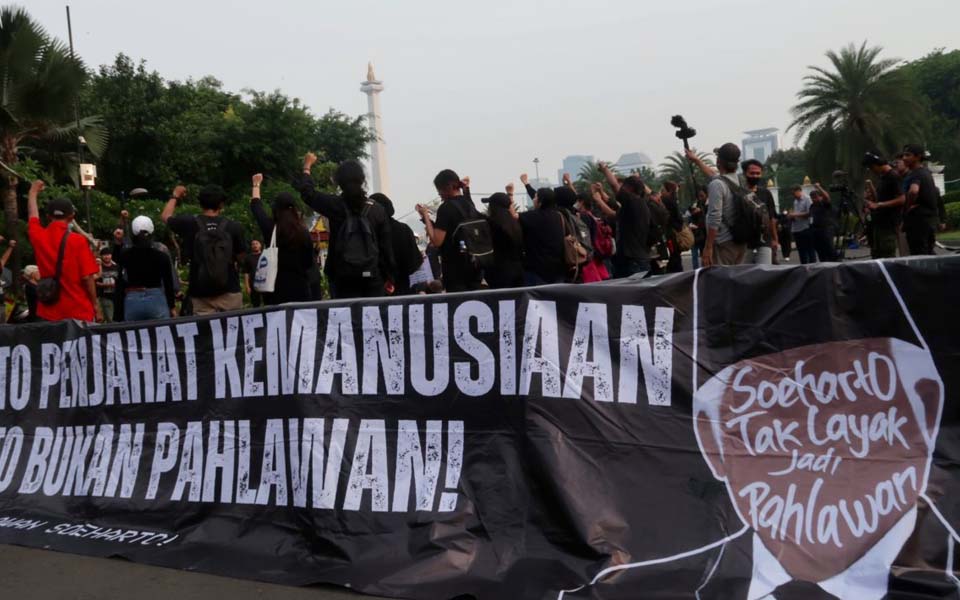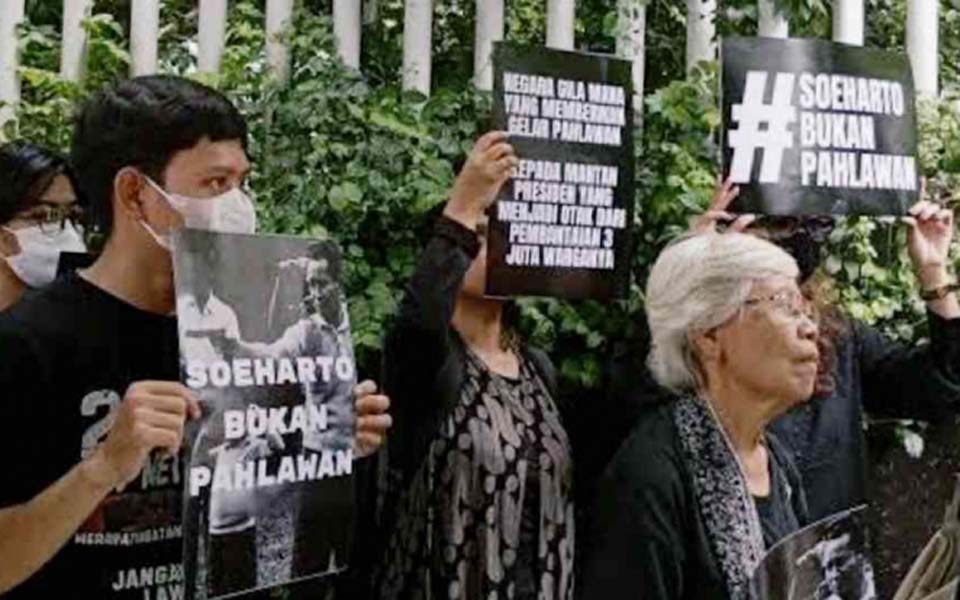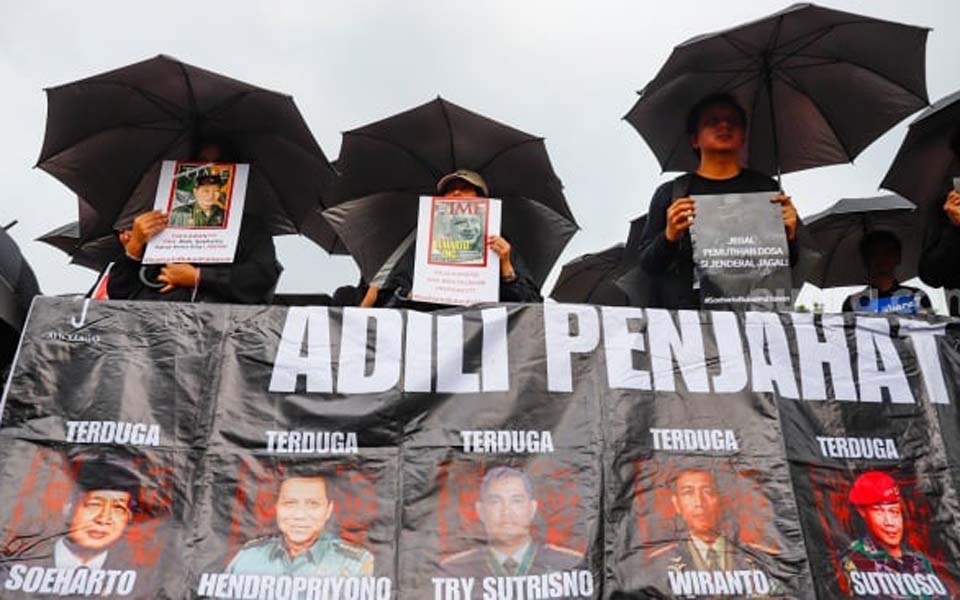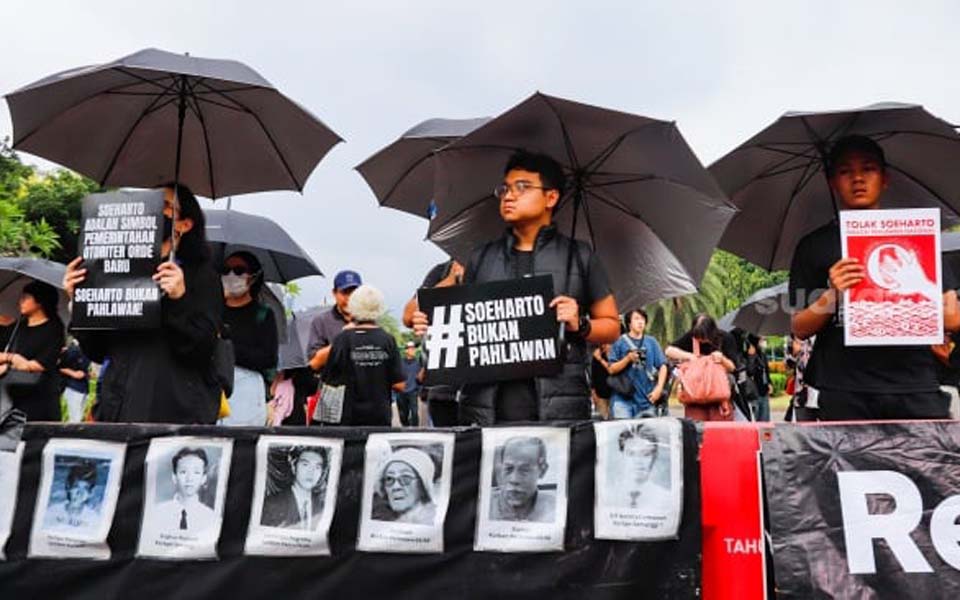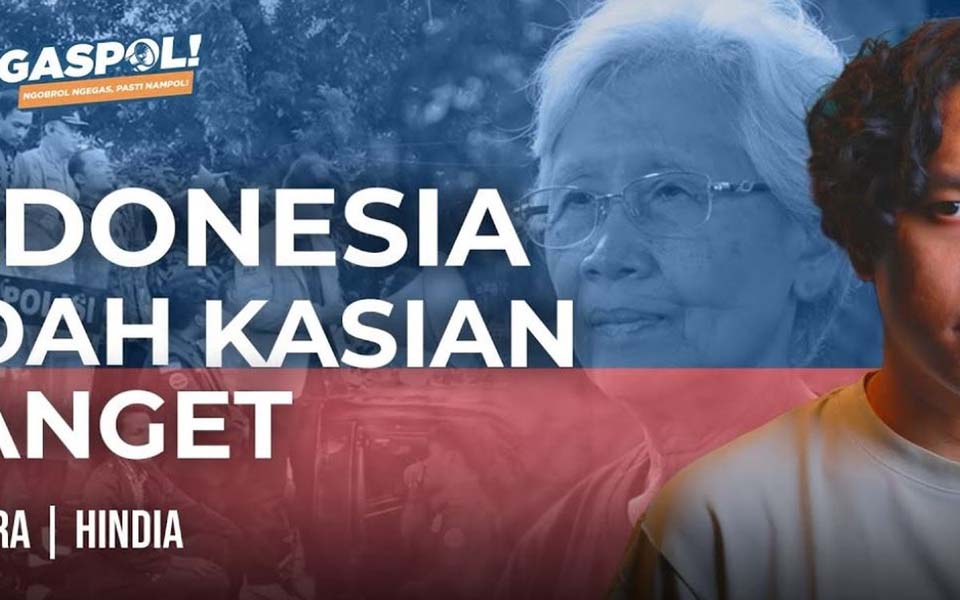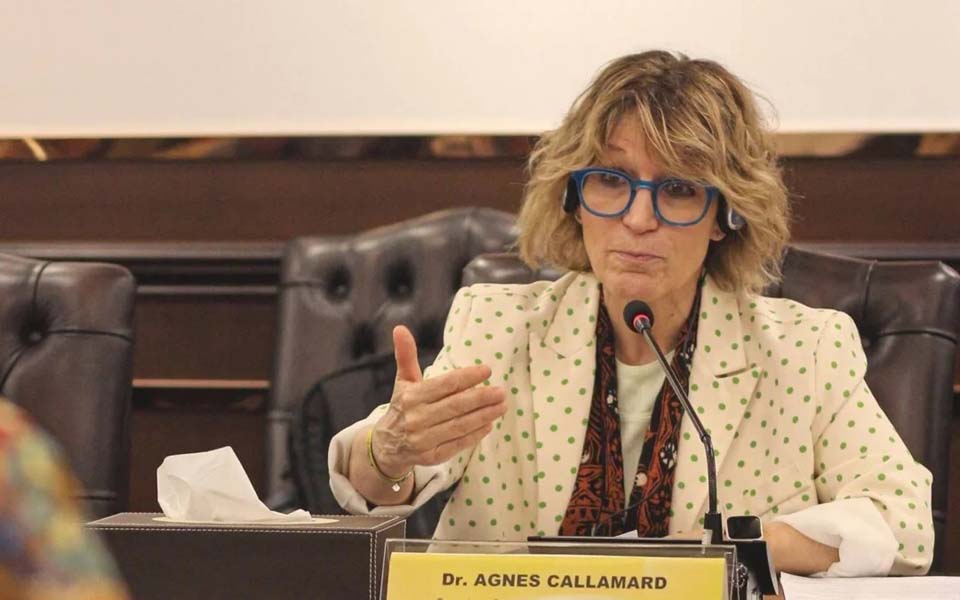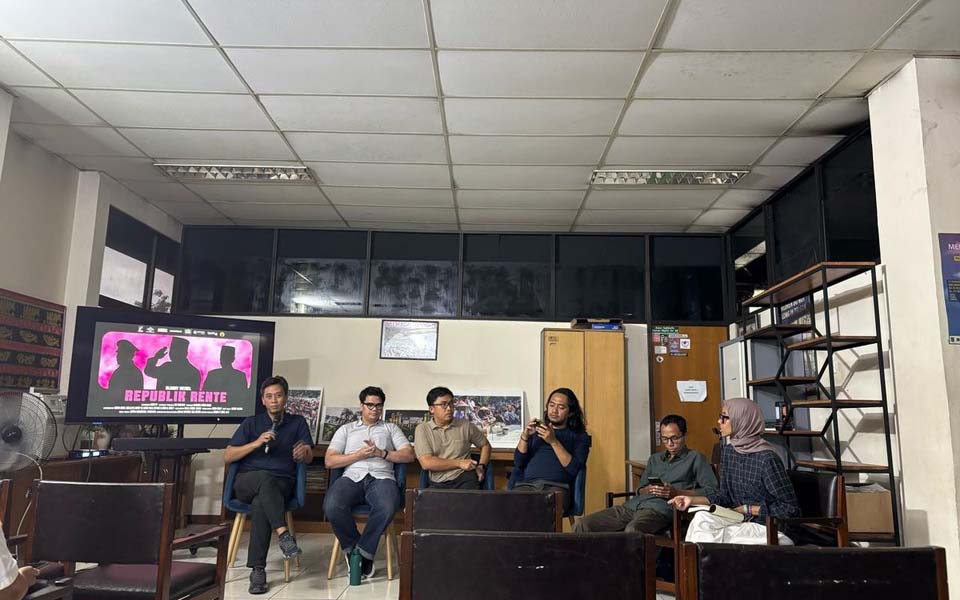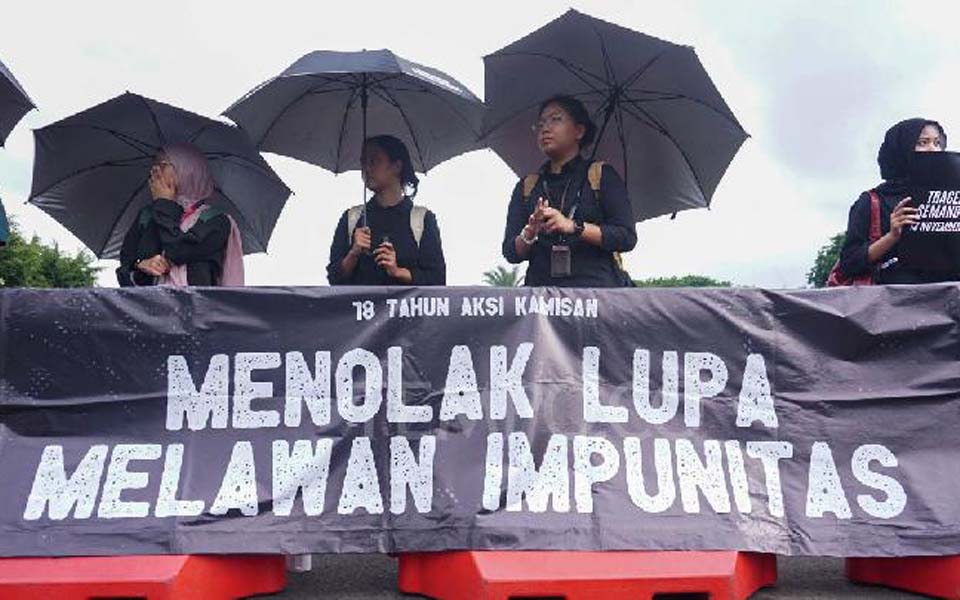Jakarta – Non-government organisations (NGOs) are concerned about Indonesia’s nomination to chair the United Nations Human Rights Commission because it will actually silence the human rights movement in Indonesia itself. In order to hold this prestigious position Indonesia must first demonstrate a strong commitment to upholding human rights at home.
This was raised by the coordinator of Indonesia’s NGO Coalition for International Human Rights Advocacy, Rafendi Djamin, the chairperson of the Indonesian Legal Aid and Human Rights Association, Hendardi, and a member of the Commission for Missing Persons and Victims of Violence (Kontras), Mukti Makarim in Jakarta on Tuesday November 23.
The three NGOs believe that if Indonesian does not improve its domestic human rights record then holding the position of head of the UN Human Rights Commission will damage Indonesia’s image in the eyes of the international community. This occurred when Libya held the position while in reality the human rights violations which were occurring in Libya had already become a point of contention within the international community.
According to Djamin, the government of Susilo Bambang Yudhoyono must demonstrate its commitment to upholding human rights in Indonesia and take international responsibility in the area of human rights, particularly if it is to chair the UN Human Rights Commission. There are key four points which must be dealt with by the Indonesian government.
Firstly, investigating and solving the murder of human rights campaigner Munir, both to solve the case as there are indications that it was a premeditated murder perpetrated against the movement to uphold human rights in Indonesia as a whole and to demonstrate Indonesia’s international commitment to ratify the UN declaration on the protection of human rights defenders before January 17 next year when Indonesia would be appointed as the commission’s chair.
Secondly, to progressively solve a number of human rights violations by ending the culture of impunity which exists at the moment, particularly in cases of gross human rights violations such as East Timor, Tanjung Priok and the cases in West Papua and Aceh. In particular it must take a position that is mature and open with regard to criticisms by the international human rights community with regard to the outcome of the East Timor ad hoc human rights court and to seek a mutual solution to break this chain of impunity.
Thirdly, immediately revoke the extension of the civil emergency in Aceh after a one month evaluation because emergency operations have invariably result in human rights violations. Doing this will provide evidence that human rights are a priority in Indonesia which will carry an important message if Indonesia is to head the respected international body.
Fourthly, demonstrate the Indonesian state’s commitment and responsibility to upholding human rights internationally, especially through the human rights mechanisms of the UN. “To date Indonesia’s accountability in upholding human rights has been minimal. We note that the government has been five years late in reporting on efforts to eliminate discrimination in Indonesia, the government has been two years late in reporting on the elimination of all forms of discrimination against women and the government is yet to respond to the 2004 report by UN’s Special Rapporteur on Torture”, said Makarim. (VIN)
[Translated by James Balowski.]






